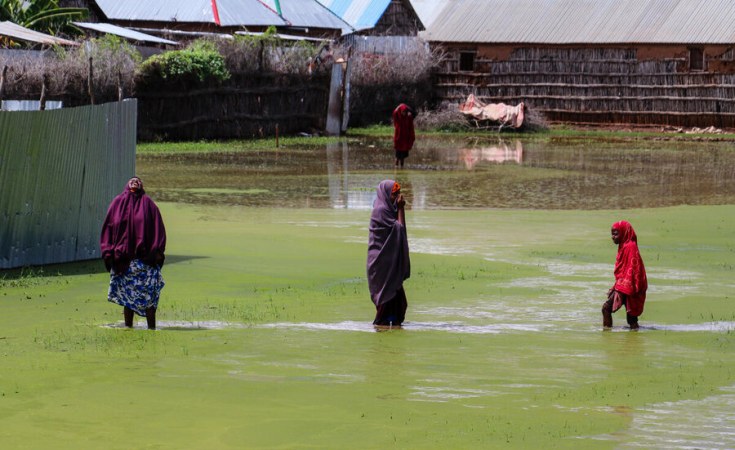Beledweyne — Beledweyne, the capital of the Hiraan Region in central Somalia, is facing a severe humanitarian crisis as the Shabelle River has burst its banks, submerging parts of the city and forcing the evacuation of numerous residents.
The floods have affected thousands of people, leaving many homeless and in desperate need of assistance.
The Shabelle River, which runs through the heart of Beledweyne, has been a source of both life and peril for the city's residents. In recent years, the region has experienced both devastating droughts and intense rainfall, highlighting the unpredictable and harsh nature of the local climate.
The current flooding is the result of unusually heavy rainfall upstream in the Ethiopian highlands, which has caused the river to overflow its banks and inundate large areas of Beledweyne.
Local authorities have begun evacuating residents from the affected areas, with many families being forced to flee their homes with little more than the clothes on their backs. The situation is particularly dire for vulnerable groups, such as the elderly, children, and pregnant women, who are at increased risk of illness and injury due to the harsh conditions.
The flooding has also exacerbated the already precarious humanitarian situation in Beledweyne, with the city's infrastructure struggling to cope with the influx of displaced residents. Many of the city's schools and hospitals have been forced to close, leaving thousands of people without access to vital services.
The Somali government, along with international aid organizations, is working to provide assistance to those affected by the floods. However, the scale of the disaster and the ongoing challenges posed by the COVID-19 pandemic have made it difficult to deliver aid to all those in need.
In response to the crisis, the Somali government has declared a state of emergency and called for international assistance to help the affected communities. The United Nations and other humanitarian organizations have mobilized resources to provide emergency shelter, food, and medical supplies to those affected by the floods.
The situation in Beledweyne remains dire, with the full extent of the damage and the long-term impact on the city's residents still unknown. As the floodwaters continue to recede, the focus will shift to rebuilding and providing support to those who have lost their homes and livelihoods.
The international community must come together to help the people of Beledweyne recover from this devastating disaster and build a more resilient future.


